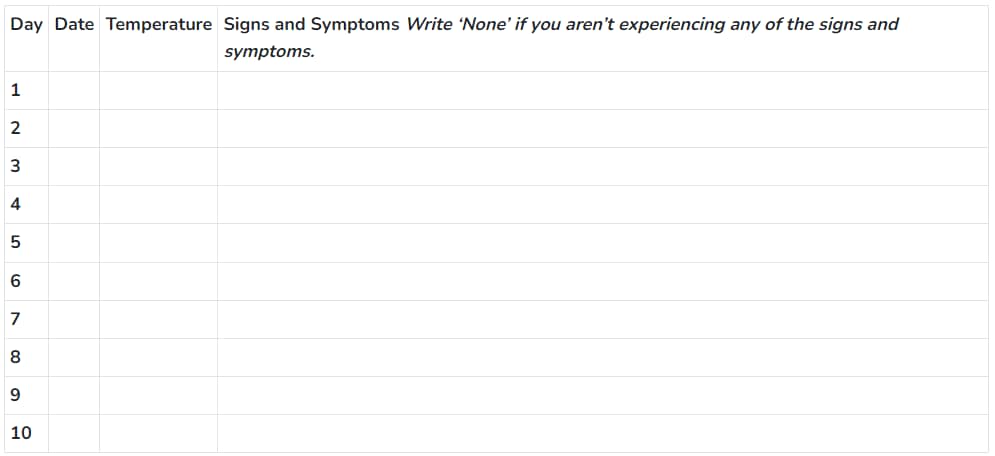What to know
You are being given this information and these instructions because you are participating or participated in responding to poultry outbreaks of bird flu and were potentially exposed to bird flu viruses.
Overview
As part of your work, you may have been around bird flu viruses. Infected birds shed bird flu viruses in their saliva, mucous and feces. Human infections with bird flu viruses can happen when enough virus gets into a person's eyes, nose or mouth, or is inhaled. This can happen when virus is in the air (in droplets or possibly dust) and a person breathes it in, or when a person touches something that has virus on it and then touches their mouth, eyes or nose. Rare human infections with some bird flu viruses have occurred most often after unprotected contact with infected birds or surfaces contaminated with these viruses. However, some infections have also been identified when direct contact was not known to have occurred. Human infections with bird flu viruses worldwide have resulted in a wide range of illness, from asymptomatic infection (no symptoms) to mild illness (eye infections, upper respiratory symptoms), to severe pneumonia resulting in death.
The Centers for Disease Control and Prevention (CDC) believes the risk of infection with bird flu viruses is low. However, because human infections with these bid flu viruses are possible, all people participating in bird flu outbreak response efforts should be monitored for illness during their duty and for 10 days after their last possible exposure to infected birds or potentially contaminated environments, even if exposure to the sick birds was minimal or if personal protective equipment (PPE) was worn appropriately. During your response efforts, please follow all instructions given to you by your safety officer. After your response effort has concluded, you (and your resident state/local health department) will be responsible for illness monitoring.
State and local health departments are helping with this monitoring effort and should contact you while you're observing your health. By following the instructions below, you can help ensure that you receive prompt medical evaluation, testing (if warranted), and appropriate treatment if you become ill with signs and symptoms that could be due to infection with bird flu viruses.
Thank you for your contribution to the bird flu domestic response effort.
What to watch out for
- Many of the signs and symptoms of bird flu overlap with those of other respiratory illnesses (like seasonal flu).
- If you develop any of the signs or symptoms listed in this fact sheet during your response efforts, contact your Safety Officer. If you cannot get in touch with your Safety Officer or develop any of the signs or symptoms listed above in the 10 days following your response efforts, call your resident health department immediately. Your health department wants to hear from you, even if it turns out to be a 'false alarm'.
- Your health department should contact you by phone, email, or text during your response efforts and while you are observing your health afterward.
- If you have symptoms, your health department will give you instructions and ask you to get tested for bird flu virus infection.
- If you have symptoms, stay home and limit contact with others as much as possible until the results of your test are known. Your health department may have additional instructions for you as well.
- To test for bird flu virus infection, a doctor or nurse will collect a sample from you by swabbing your nose and/or throat.
- If you become sick while you are observing your health after demobilization, a health care provider may prescribe you an antiviral medication that is used for treatment of flu. It's important to take the medication as prescribed. (CDC recommends that clinicians prescribe antiviral medications for treatment of ill people who had exposure to bird flu viruses.)

Bird flu virus infections in humans are of public health concern, not only because of the illness they may cause, but because of their pandemic potential. Some bird flu viruses have been associated with greater numbers of human infections and more serious illnesses in people and therefore may pose a higher public health risk.Bird flu viruses of public health concern include:
- Bird flu viruses that have caused severe and fatal disease in humans, such as highly pathogenic avian influenza (HPAI) A(H5N1) and A(H5N6) viruses and low-pathogenic avian influenza (LPAI) A(H7N9) virus.
- Bird flu viruses that are related to viruses that have caused severe disease in humans because of their perceived potential to also cause severe disease in people. These include avian influenza viruses recently detected in birds in the United States.
- Other bird flu viruses may be deemed to be of public health concern based on specific circumstances.
